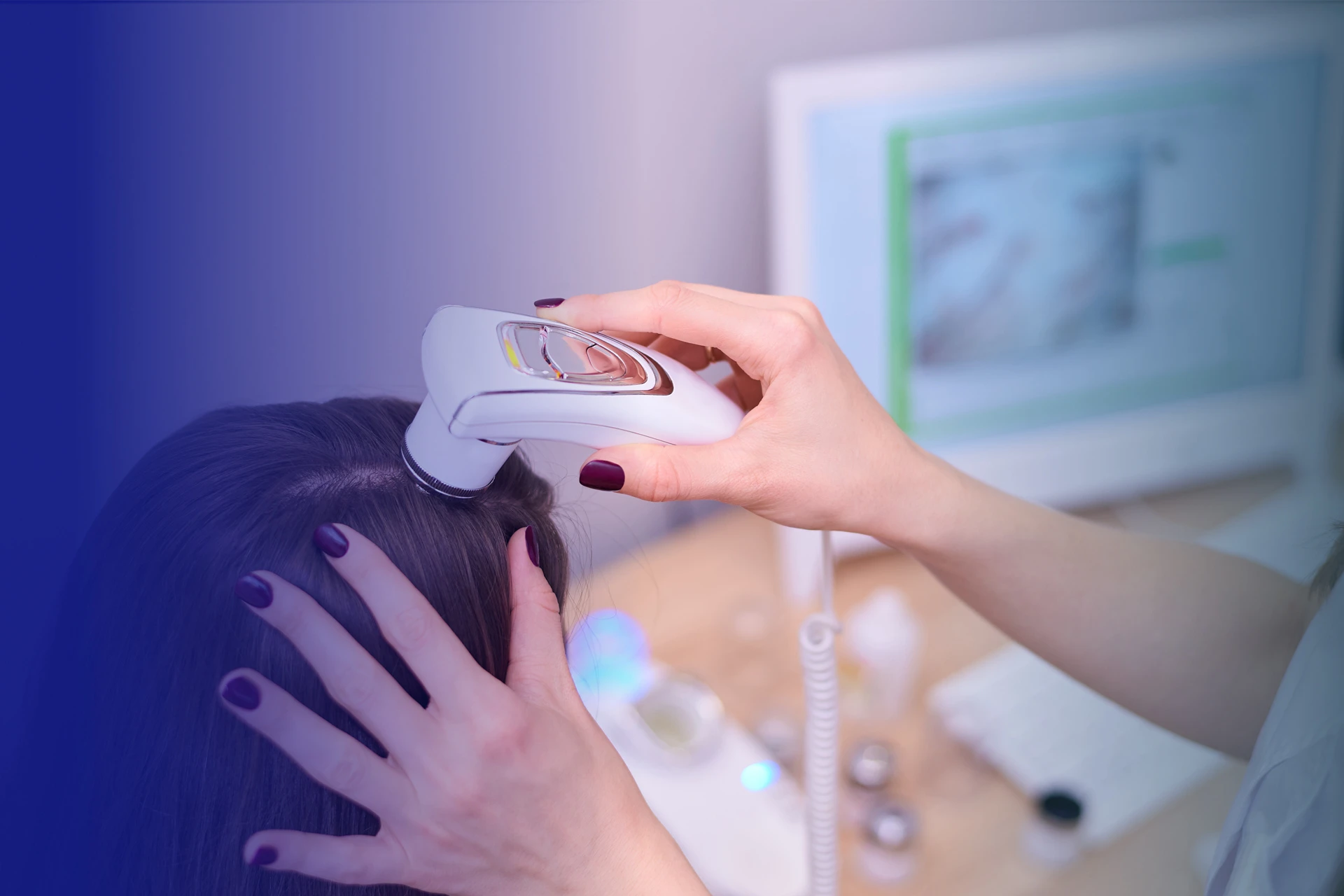
Your scalp is a very important part of the body. It is bordered by the face and the back and side of the neck and is where the hair grows across the top of the head. The area can be prone to a number of scalp conditions. These can be fungal (dandruff or seborrheic dermatitis), parasitic (head lice) and inflammatory (psoriasis and eczema). These conditions often share symptoms like an itchy scalp, redness, dry scalp, scalp acne and flaking skin. They are usually not too serious and can be treated with medicated products and an attentive care routine.
Table Of Content
Even if you are not experiencing a condition requiring specialist scalp treatment, you must still take very good care of this area of the body. A healthy scalp promotes hair growth, prevents hair loss, ensures a hygienic, clean head and keeps hair in sleek, shiny condition. In cases of hair loss HWT Clinic can solve your issue with Turkey Hair Transplant but scalp treatments can postpone that issue.
Try not to put too much pressure on the scalp when washing and styling your hair. Don’t tug on your hair or brush or comb it too harshly. Use a natural-bristled brush that is more gentle on the hair. Apply a wide-toothed comb to any mussed up hair, perhaps adding some conditioner if the tangles are difficult to brush out. When you wash your hair, towel dry it before using a hair dryer . This makes it drier when you start applying heat so you don’t need to expose it to hot air for quite so long. Massage the scalp occasionally too, to help stimulate blood flow. Even if you are not experiencing a condition requiring specialist scalp treatment, you must still take very good care of this area of the body. A healthy scalp promotes hair growth, prevents hair loss, ensures a hygienic, clean head and keeps hair in sleek, shiny condition. In cases of hair loss HWT Clinic can solve your issue with Hair Transplant in Turkey but scalp treatments can postpone that issue. Turkey has solidified its reputation as a sought-after destination, offering a winning combination of excellence and affordability in the realm of hair transplants and the Turkey hair transplant cost stood as remarkably reasonable compared to many other countries. HWT Clinic where locate in Turkey offers effective solutions and affordable prices through Turkey hair Transplant.
Avoid always making tight hairstyles like pony tails, braids or buns – give your hair a break from these from time to time. Try to loosen the hair around the scalp and hairline and seek professional help to apply hair extensions or semi-permanent styles like cornrows. Try to wait eight to ten weeks between chemical treatments such as colouring, bleaching, perming or chemical straightening. This is also to allow the scalp time to recover. Try not to let chemicals touch the scalp when they are being applied. This can lead to chemical burns, irritation and scarring.
However you style your hair, try to stay out of direct sunlight as much as possible to protect the delicate skin on your scalp. Wear a wide-brimmed hat, preferably one made from UV resistant material.
Choosing the best shampoo for itchy scalp conditions is important. This is because it helps alleviate any annoying symptoms and to support the skin cells in healthy rejuvenation. You can get specially medicated shampoos of varying strengths, designed to address scalp conditions and their symptoms. These types of shampoo can also help slow down or even stop hair loss or thinning.
However, even if your head area is not in need of medical attention, you should still choose the best shampoo for your scalp. If your scalp is ‘normal’, i.e. not too oily or too dry, look for a normal shampoo that will clean your hair and skin and leave it feeling soft and healthy. A dry shampoo will suit brittle, overtreated hair and a scalp that has been over-exposed to heated styling tools such as straighteners or curling tongs. You should only use a professional shampoo or scalp scrub once a week. This is because these types of product can be stronger than everyday shampoos and could cause irritation if used too frequently.
The scalp can be subjected to a number of conditions, as already mentioned above, which can lead to soreness, irritation and scalp micropigmentation. There are several simple scalp treatment options to alleviate these conditions. Here are some of the most common and how to treat them.
Scalp psoriasis is an autoimmune condition that can run in families. It is a long-term condition, which can provide random periods of remission when symptoms disappear for a while. Psoriasis is caused by overly rapid cell growth which leads to thick white or red scaly patches on the scalp, as well as itching, scalp lesions and dandruff-like flakes of skin. Treatment can include washing the scalp in salicylic acid or tar shampoo. More severe cases can be addressed with topical application of corticosteroids to reduce inflammation and itching.
This scalp condition attacks the hair follicles, but can also present in the beard, arms, legs and back. Symptoms include a sore scalp, created by bacteria, fungus or parasites infiltrating the hair follicles. They cause redness, pain, burning sensations and itchiness around hair strands, as well as red pimples that may also contain pus. Mild cases can be cured with a warm compress to draw the attacking forces out and calm the itching or inflammation. In more serious cases, oral antibiotics or antifungal medication can be prescribed.
If you see small, red, itchy scabs and greasy skin flakes (dandruff) on your scalp, this could be seborrheic dermatitis, another common skin condition. It is normally one of the milder scalp conditions and can clear up on its own after a few months. The condition is known as cradle cap in young infants. It is triggered by over-production of a harmless yeast that lives on the skin. Treatment centres around reducing this yeast and can be done through medicated shampoos and mild steroidal creams. Always consult a dermatologist if you have any concerns around treatment, especially in infants.
A fungal infection that often causes an itchy or sore scalp is ringworm, or tinea capitis. This fungus attacks the scalp’s outer layer, leaving a rash that presents in circular patches with red, raised edges. Ringworm can be highly contagious, so it is important to treat it as soon as you discover it. You should also stay away from other people until it has cleared up completely. And refrain from sharing towels, crockery, brushes and clothes. Treat with an antifungal shampoo or prescription medication. Wash your hands after using topical creams to avoid spreading the ringworm elsewhere on your body.
This common skin condition affects all kinds of areas of the body, including the scalp, face and neck. It can be genetic, occur out of the blue or arrive as a result of stress or an allergic reaction. Eczema presents as an itchy, thickened patch of scaly skin, which can also have small bumps that look like blisters. It can be treated with medicated shampoo or topical creams. It can also clear up on its own in many cases. Reducing stress and maintaining excellent skin hygiene helps to keep eczema away.
Alopecia areata is another auto-immune skin disease affecting the scalp, face and other parts of the body. It shrinks the hair follicles, leading to dramatic slowing of hair growth and eventually hair loss. Once again, treatment depends on how severe the condition is, but topical steroid creams can help, as can corticosteroids injected into the scalp with a tiny needle. If the alopecia areata is irreversible without intervention, Turkey hair transplant treatments can be considered to stimulate regrowth of the hair follicles. Consult a hair clinic or dermatologist for more information on this and other scalp conditions.




